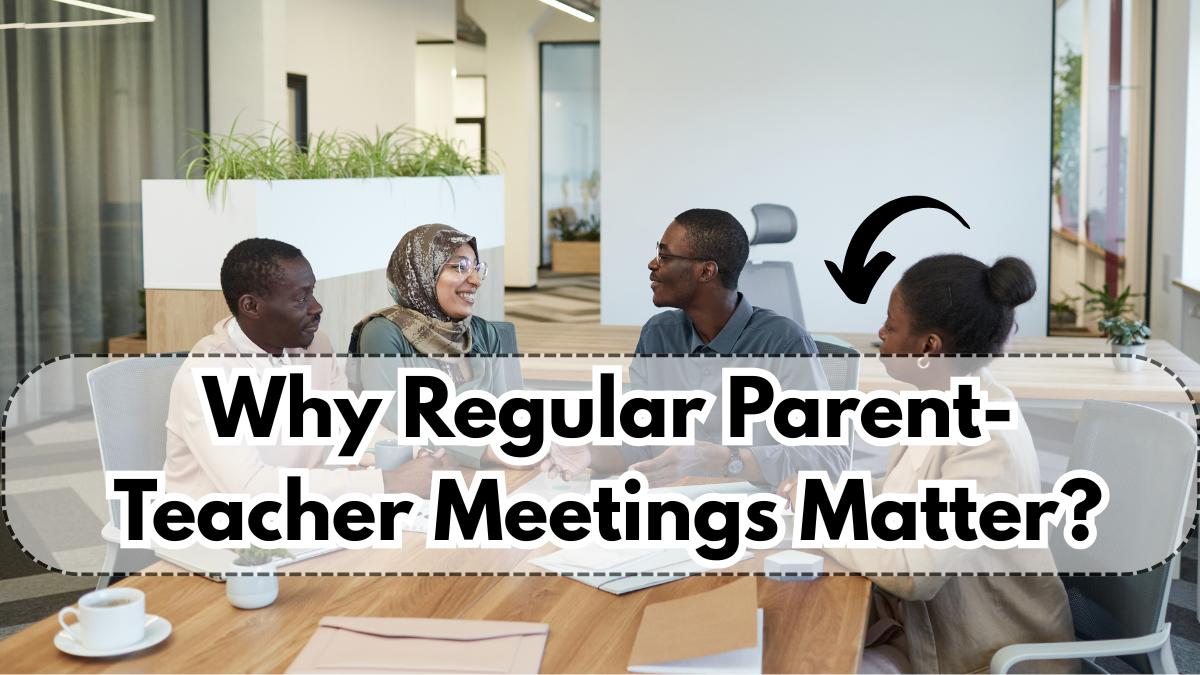One of the most powerful ways to boost a child’s academic and emotional success is through regular communication between parents and teachers. Parent-teacher meetings (PTMs) provide the perfect platform for such collaboration. These sessions are not just routine school events—they’re meaningful opportunities to track progress, resolve issues early, and ensure students get the guidance they need.
Strong parent-school communication lays the foundation for improved performance, consistent support, and stronger student outcomes. Let’s explore why attending these meetings is one of the most valuable habits a parent can develop.

Strengthens Parent-School Communication
The first and most important benefit of parent-teacher meetings is enhanced two-way communication. It’s a chance for parents to understand what happens in the classroom and for teachers to learn more about the child’s home life and habits.
Benefits of open communication:
-
Teachers share academic progress, strengths, and weaknesses.
-
Parents update teachers on health, behavior, or emotional issues.
-
Builds mutual trust and understanding between home and school.
Good parent-school communication ensures both sides work together effectively.
Helps Track Academic Performance
One of the key purposes of PTM is to keep parents updated on their child’s performance—academically and behaviorally. It highlights areas of improvement and success in a structured, transparent manner.
What PTMs reveal:
| Area Discussed | Possible Action |
|---|---|
| Test scores | Remedial learning steps |
| Class participation | Boosting confidence |
| Homework completion | Building discipline |
Regular tracking helps avoid sudden surprises in a child’s performance report.
Encourages Active Parental Engagement
When parents show consistent interest in their child’s school life, it boosts motivation and accountability in the student. This is why parent engagement is considered a critical part of holistic education.
Ways PTMs improve engagement:
-
Parents ask relevant questions and show support.
-
Teachers recommend personalized learning strategies.
-
Students feel supported both at school and at home.
This level of parent engagement has long-term benefits on a child’s academic journey.
Builds Stronger Teacher-Parent Relationships
Beyond grades and behavior, parent-teacher meetings help build strong interpersonal relationships. They create a safe space for sharing feedback, expressing concerns, and working together for the child’s well-being.
Key outcomes of relationship building:
-
Resolving misunderstandings quickly
-
Joint strategies for handling behavioral challenges
-
Shared celebrations of progress
Stronger teacher interaction leads to better learning environments for students.
Supports Holistic Child Development
PTMs go beyond academics—they’re about understanding the child as a whole. Teachers often notice emotional or social challenges that may not be obvious at home. Parents, too, may notice things that don’t show up at school.
Combined focus areas include:
-
Mental health and emotional needs
-
Peer interactions and friendships
-
Learning pace and interest areas
This ensures that both school and home contribute to balanced child development.
FAQs
What is the main purpose of parent-teacher meetings?
Parent-teacher meetings are meant to track a child’s academic and personal development, enabling collaboration between parents and teachers for improved outcomes.
Why is parent-school communication important?
Strong parent-school communication ensures that children receive consistent guidance, support, and timely intervention when needed.
How do PTMs improve parent engagement?
PTMs provide a platform for parents to stay informed, ask questions, and become active partners in their child’s education, fostering deeper parent engagement.
What topics are usually discussed during PTMs?
Discussions include academic performance, behavior, social skills, learning challenges, and overall well-being.
How does teacher interaction affect the student’s growth?
Positive teacher interaction with parents helps identify and resolve issues early, improving learning outcomes and emotional stability.
Click here to know more.
